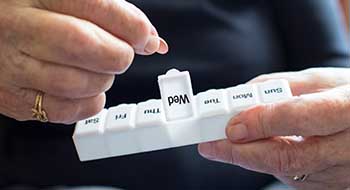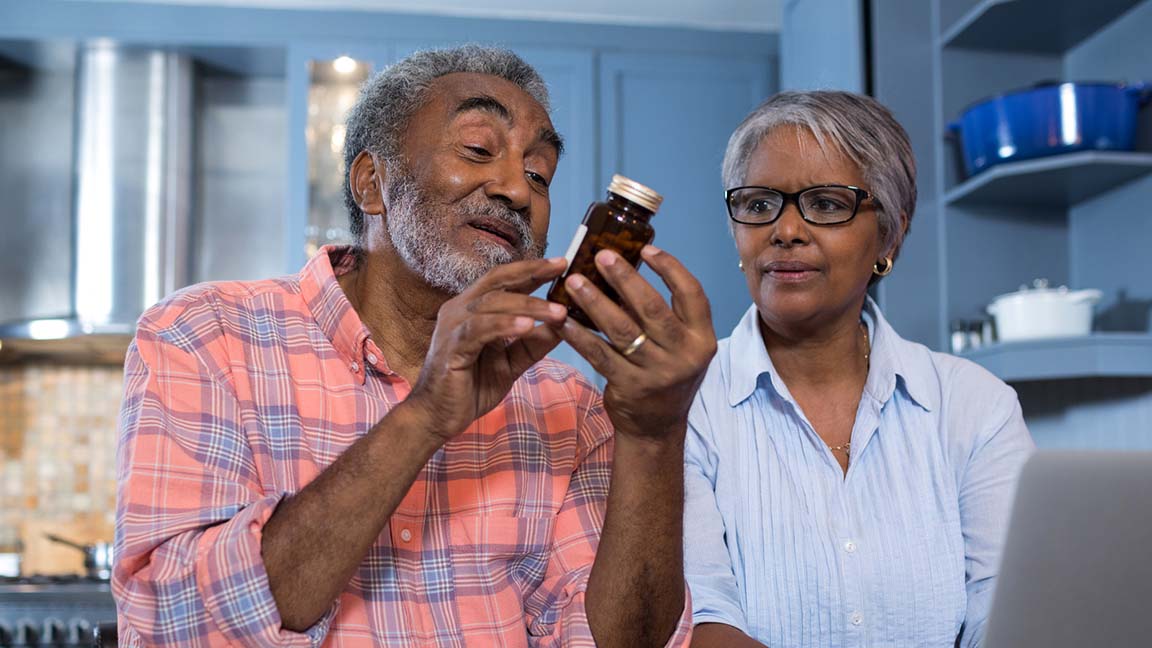With so many multivitamins and supplements on the market, it can be confusing to determine what to take – or whether to take them at all. Kelly Edwards, assistant director of pharmacy at Tidelands Health, offers her advice on how to decide if you should take supplements and how to identify the right ones for you.
How do you determine what supplements a patient should be taking?
There are recommended daily intakes of vitamins and minerals, but supplementation is very dependent on the person. Each individual is unique and, depending on the person’s medical history, needs, size and metabolism, may have different supplement needs.
Do I need to take a multivitamin? Don’t I get nutrients from food?
I generally recommend most people consider a good multivitamin to help ensure you receive proper amounts of nutrients in your diet. Most people do not eat the recommended servings of fruits and vegetables each day, and some people can also have food intolerances or allergies that prevent them from eating certain foods or food groups. Of course, before beginning any new supplement, you’ll want to speak with your physician.

Senior Woman Taking Medication From Pill Box
Listen in
Listen in as Kelly Edwards, assistant director of pharmacy at Tidelands Health, discusses supplements on this Better Health Radio podcast.
How do I know which specific supplements to take?
That’s one of the subjects you’ll want to cover with your physician. He or she can evaluate your medical history and offer guidance on what supplements, if any, you should consider taking. For example, your physician may look at lab results and find a deficiency you can correct through a supplement.
Are there any possible problems or complications that I need to be aware of?
The Food and Drug Administration regulates dietary supplements but not to the stringent degree that medications are regulated. The FDA does not require that manufacturers prove a supplement’s safety or effectiveness. Be sure you are buying your supplements from a reputable source. You may want to consider purchasing USP certified or verified supplements. USP verified dietary supplements are products that have been voluntarily submitted to the USP Dietary Supplement Verification Program and have successfully met the program’s stringent testing and auditing criteria. The program was established by USP to help dietary supplement manufacturers ensure the production of quality products for consumers.
Also, if you have specific sensitivities, check to see what type of fillers are in the supplements. Many people are lactose intolerant or have gluten sensitivities; gluten and lactose can be found in some supplements.
You also have to be careful with certain vitamins to avoid overdose, though that’s a small risk. It’s important to stay informed and keep your physician updated so he or she can monitor your levels.
Patients who are taking multiple vitamins and supplements could be getting the same vitamins in several different supplements. You don’t want to be taking too much of something, so talk with your physician or pharmacist.
Do I need a prescription?
Supplements are available over the counter, though a doctor can recommend them. Most people purchase supplements through retail stores or buy them online.
Even though you can buy supplements without a prescription, you should always let your physician and pharmacist know the different supplements you are taking. Some of them can interact with prescription drugs or impact your health in a different way.
Once I start taking a supplement, can I stop taking it?
Yes. In some cases, you may take a higher dose of a supplement to reach a specific target and then reduce your consumption to a lower level. Overall, I recommend people take a good multivitamin every day. I’m also a big proponent of probiotics to support your gut microbiome and immune system.
How do I know if I should stop taking a supplement?
Your physician can offer guidance on when it’s time to cut back. With supplements, it can depend a lot on how you feel when you are taking them and whether they’re achieving the desired health benefits.





